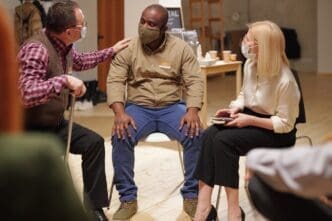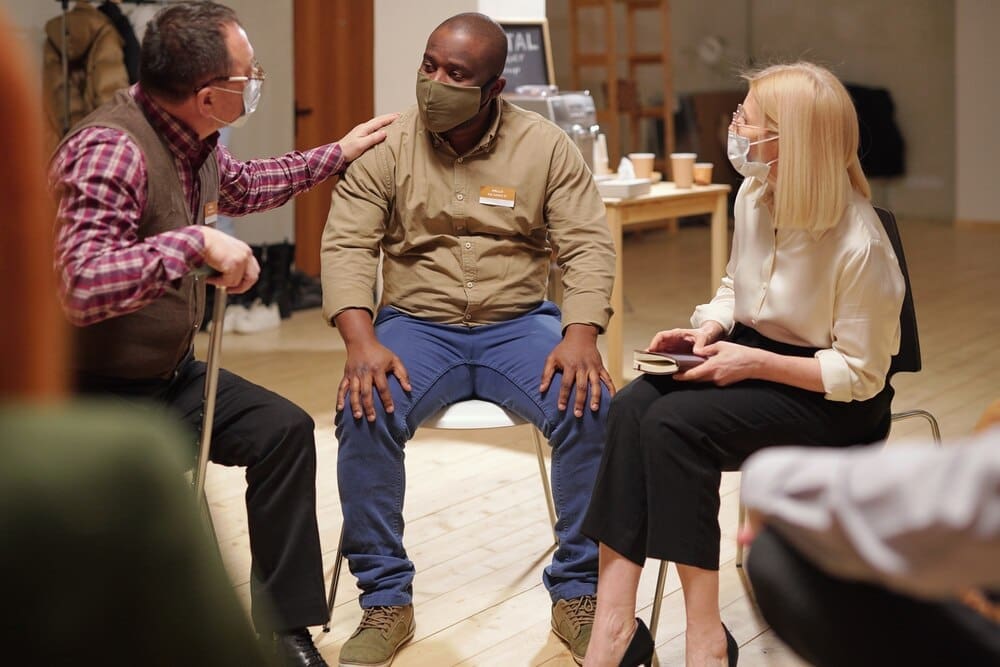Finding a therapist who truly understands your cultural background is a critical, yet often challenging, step in seeking mental health support. For individuals from marginalized or minority communities, culturally competent therapy—an approach where a clinician possesses the awareness, knowledge, and skills to effectively work with clients from diverse backgrounds—is not a luxury but a necessity for effective treatment. This process involves actively seeking out professionals who recognize how a person’s identity, including their race, ethnicity, religion, sexual orientation, and socioeconomic status, shapes their life experiences and mental health, ultimately fostering a safer, more trusting, and more effective therapeutic relationship.
What is Cultural Competence in Therapy?
Cultural competence in mental health is far more than a therapist simply sharing the same race or ethnicity as their client. While a shared background can be helpful, true competence is a multifaceted skill set that a therapist actively develops and maintains. It is fundamentally about a clinician’s ability to recognize, respect, and integrate a client’s cultural values and beliefs into the therapeutic process.
This framework is often understood through three core pillars: self-awareness, knowledge, and skills. Without all three, a therapist’s ability to provide equitable care is significantly diminished.
Awareness of One’s Own Biases
The foundation of cultural competence begins with the therapist’s own self-reflection. A competent clinician must be aware of their own cultural worldview, personal values, and, most importantly, their inherent biases and privileges. They understand that their perspective is not the universal default.
This awareness requires an ongoing commitment to examining how their own identity might influence their perceptions of a client’s problems. It means acknowledging that they may hold unconscious stereotypes or assumptions and actively working to prevent those biases from negatively impacting the therapeutic relationship.
Knowledge of Different Worldviews
Beyond self-awareness, a culturally competent therapist must possess specific knowledge about the cultural backgrounds of the clients they serve. This includes understanding different communication styles, social norms, family structures, and views on mental health and healing.
For example, they would know that some cultures may express emotional distress through physical symptoms (somatization) rather than verbalizing feelings of sadness or anxiety. They would also understand the historical and systemic factors, such as colonialism, racism, or immigration-related trauma, that affect the mental health of specific communities.
Skills in Cross-Cultural Application
Finally, awareness and knowledge must be translated into practical skills. A culturally competent therapist can adapt their therapeutic techniques to fit the client’s cultural context. This might involve incorporating family or community into treatment, respecting spiritual beliefs, or using communication styles that resonate with the client.
A crucial component of this is cultural humility. This is the understanding that becoming culturally competent is a lifelong process of learning, not a final destination. A humble therapist is open to being corrected by the client, acknowledges the limits of their own knowledge, and views the client as the expert on their own experience.
Why Does Cultural Competence Matter?
The search for a culturally competent therapist is essential because it directly impacts the effectiveness of treatment and the well-being of the client. When a client feels their cultural identity is ignored, misunderstood, or pathologized, therapy can do more harm than good.
A strong therapeutic alliance, or the bond between a client and therapist, is one of the most significant predictors of successful therapy outcomes. This bond is built on trust, empathy, and a sense of psychological safety. For clients from marginalized groups, this safety is impossible to achieve if they fear being judged or misunderstood because of their identity.
Furthermore, a lack of cultural competence can lead to misdiagnosis. A therapist who is unfamiliar with a client’s cultural expressions of distress might misinterpret them as symptoms of a more severe mental illness. Conversely, they might dismiss the very real mental health impact of systemic issues like racism and microaggressions, attributing the client’s distress solely to internal factors.
When clients feel seen and understood in their full context, they are more likely to stay in therapy, engage more deeply in the process, and experience better mental health outcomes. It validates their lived reality and empowers them to heal in a way that honors their whole self.
Practical Steps to Find a Culturally Competent Therapist
Finding the right therapist requires proactive research and direct inquiry. It is an investment of time and energy that pays significant dividends for your mental health journey. The following steps can help guide your search.
Utilize Specialized Directories and Networks
While general directories are a starting point, several platforms are specifically designed to connect clients with culturally affirming therapists. These resources often vet their providers or offer a space for clinicians to detail their commitment to diversity and inclusion.
Helpful directories include:
- Therapy for Black Girls: An online space dedicated to encouraging the mental wellness of Black women and girls.
- National Queer and Trans Therapists of Color Network (NQTTCN): A healing justice organization that provides a directory of QTBIPOC (Queer and Trans Black, Indigenous, and People of Color) mental health practitioners.
- Latinx Therapy: A network that works to destigmatize mental health in the Latinx community and provides a directory of therapists.
- Asian Mental Health Collective: Features a directory of Asian therapists and works to make mental healthcare more accessible to Asian communities.
- Inclusive Therapists: A network that centers the needs of Black, Indigenous, and People of Color (BIPOC) and the 2SLGBTQIA+ community, focusing on social justice and decolonizing therapy.
Mainstream directories like Psychology Today can also be useful. Use their filtering options to search for therapists by ethnicity, language, and specialties like “Racial Identity” or “LGBTQ+.”
Scrutinize Therapist Profiles and Websites
Once you have a list of potential therapists, carefully review their professional profiles and personal websites. Look for explicit language that signals cultural competence. Do they mention their experience working with diverse populations? Do they list any specialized training in multicultural counseling or anti-oppression frameworks?
Pay attention to the language they use. An inclusive website will use gender-neutral language and may have a diversity statement. A lack of any mention of culture, diversity, or systemic issues can be a red flag.
Prepare for the Consultation Call
Most therapists offer a free 15-20 minute consultation call. This is your opportunity to interview them. Prepare a list of questions in advance to gauge their level of cultural competence and humility. Feeling nervous is normal, but remember that you are a consumer seeking a service, and you have the right to ensure it’s the right fit.
Questions to Ask a Potential Therapist
Consider asking direct questions that get to the heart of their approach:
- “What is your experience working with clients from my [race, ethnicity, religion, sexual orientation, etc.] background?”
- “How do you incorporate a client’s cultural identity and experiences into your therapeutic approach?”
- “What specific training have you had in multicultural or culturally competent care?”
- “How do you address issues like systemic racism, discrimination, or microaggressions when they come up in therapy?”
- “Can you describe a time you became aware of a cultural blind spot in your work and what you did about it?” (This question effectively tests for cultural humility).
Listen not only to what they say but how they say it. Do they answer confidently and openly, or do they seem defensive, dismissive, or uncomfortable?
Trust Your Gut Feeling
After the consultation, take a moment to reflect on how the conversation felt. Did you feel respected and heard? Did the therapist seem genuinely curious and open? Or did you feel like you had to defend your experiences or educate them?
The therapeutic relationship is deeply personal. It is perfectly acceptable to speak with several therapists before you find one who feels right. Trust your intuition—it is a valuable tool in this process.
Red Flags: Signs a Therapist May Lack Cultural Competence
Just as there are green flags to look for, there are also clear red flags that may indicate a therapist is not the right fit for you. Be wary of clinicians who:
- Make broad generalizations or stereotypes about your cultural group.
- Dismiss or minimize the impact of racism, sexism, homophobia, or other forms of discrimination on your mental health.
- Become defensive or uncomfortable when you bring up topics related to your cultural identity.
- Place the burden on you to educate them about your culture, history, or experiences.
- Suggest that you should assimilate or that your cultural values are the source of your problems.
If you encounter any of these behaviors, it is a strong sign that the therapist lacks the necessary competence to support you effectively. It is always okay to end the therapeutic relationship and seek care elsewhere.
The journey to finding a culturally competent therapist is an act of self-advocacy and a crucial investment in your mental wellness. While it may require extra effort, connecting with a professional who honors your entire identity creates the foundation for profound healing. By researching intentionally, asking direct questions, and trusting your instincts, you can find a therapeutic partnership that feels safe, validating, and truly effective.













